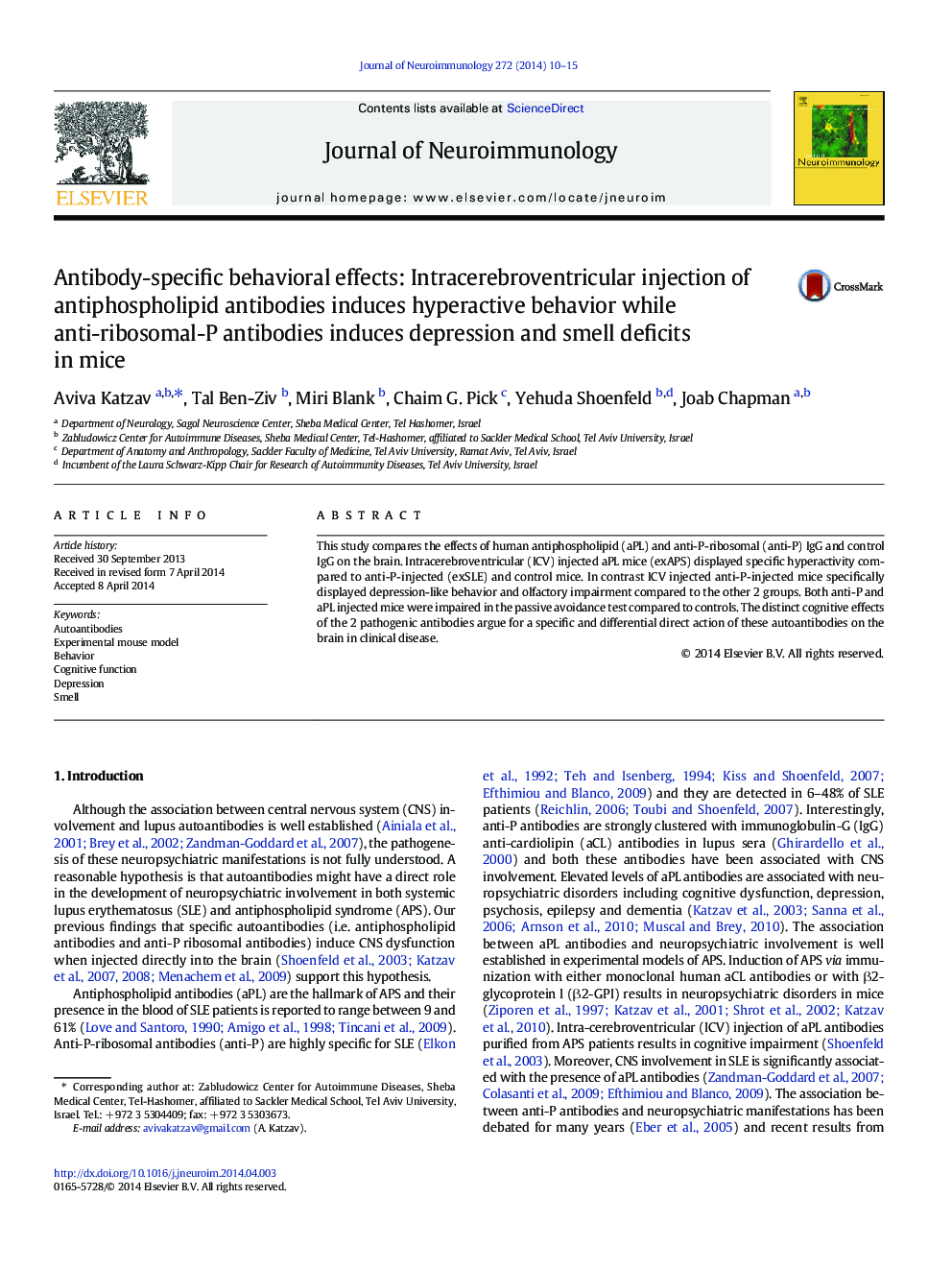| Article ID | Journal | Published Year | Pages | File Type |
|---|---|---|---|---|
| 3064006 | Journal of Neuroimmunology | 2014 | 6 Pages |
•Distinct behavioral and cognitive effects of two pathogenic autoantibodies in mice.•Specific and differential direct action of autoantibodies on the brain.•Autoantibodies have a key role in the pathogenesis of CNS manifestations.
This study compares the effects of human antiphospholipid (aPL) and anti-P-ribosomal (anti-P) IgG and control IgG on the brain. Intracerebroventricular (ICV) injected aPL mice (exAPS) displayed specific hyperactivity compared to anti-P-injected (exSLE) and control mice. In contrast ICV injected anti-P-injected mice specifically displayed depression-like behavior and olfactory impairment compared to the other 2 groups. Both anti-P and aPL injected mice were impaired in the passive avoidance test compared to controls. The distinct cognitive effects of the 2 pathogenic antibodies argue for a specific and differential direct action of these autoantibodies on the brain in clinical disease.
